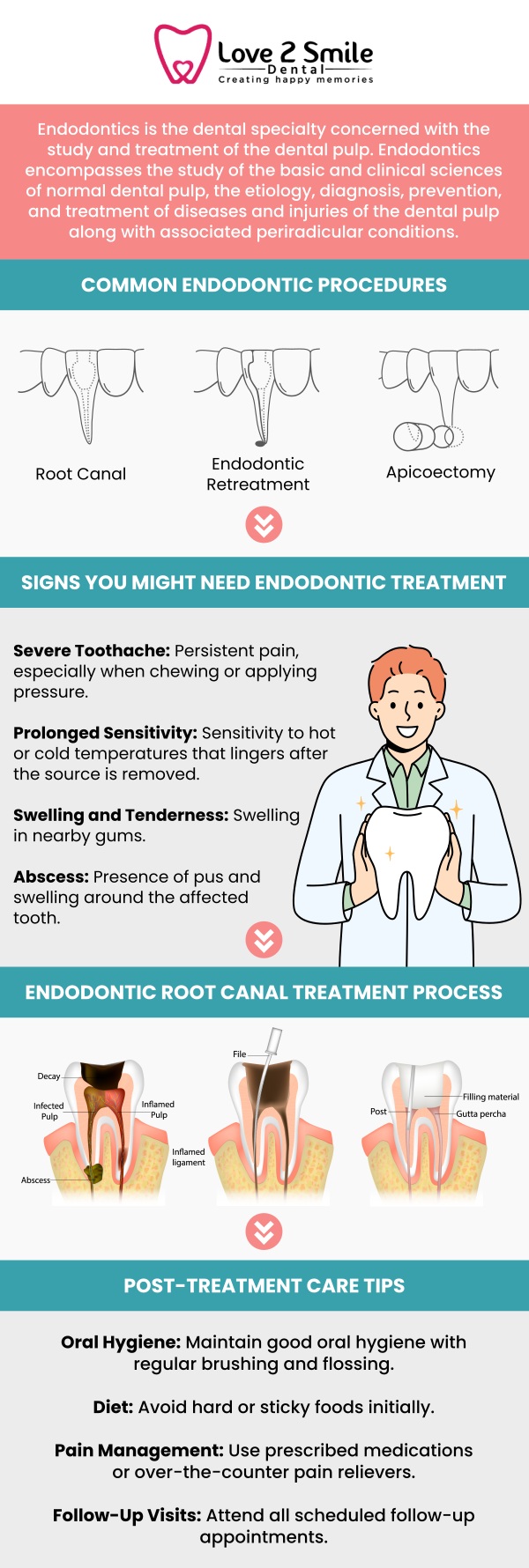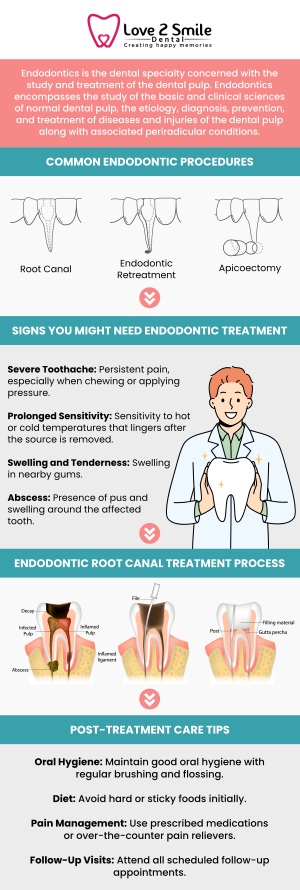What Is Endodontic Treatment and Why Would I Need an Endodontic Procedure?
Endodontic treatment, commonly known as a root canal, involves removing infected or damaged tissue inside a tooth to save it. You may need this procedure if you experience severe tooth pain, swelling, or an infection that threatens the tooth’s health. Dr. Divya Nagaraj DDS at Love 2 Smile Dental provides the highest standard of care in all aspects of endodontic therapy, including root canals, retreatments of previous root canals, and many others. For more information, contact us today or schedule an appointment online. We are conveniently located at 1050 N Bryan-Belt Line Rd Ste 102, Mesquite, TX 75149.






Additional Services You May Like
▸ Emergency Care
▸ Smile Makeover
▸ Invisalign
▸ General Dentistry
▸ Dentures
▸ Root Canal
▸ Dental Fillings
▸ Teeth Whitening
▸ Oral Cancer Screening
▸ Tooth Extraction
▸ Dental Crown
▸ Dental Bridges
▸ Dental Check-ups & Cleaning
▸ Pediatric Dentist
▸ Cosmetic Dentistry
▸ All-on-4 Dental Implants
▸ Dental Implants
▸ Single Tooth Implants
▸ Deep Cleaning



